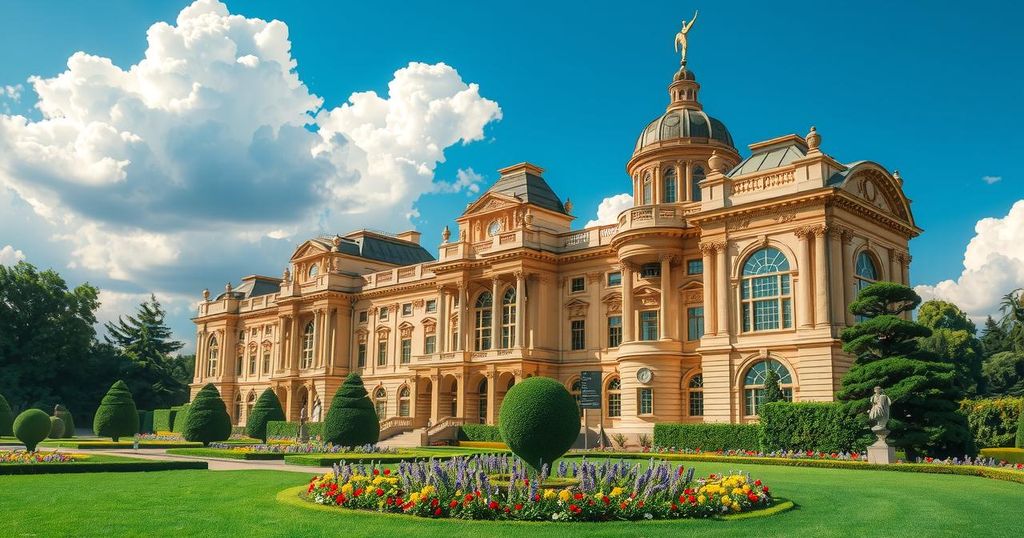Prince Mohamed Ali Farouk, grandson of Egypt’s last king, has returned to Cairo, crediting King Hassan II for intervening during his family’s exile. This historic move represents a bridge between Egypt’s royal past and modern republicanism. The prince expresses gratitude for his wife’s support and aims to rehabilitate his family’s legacy, distancing from political ambitions while honoring 150 years of history.
Prince Mohamed Ali Farouk, the grandson of Egypt’s last king, has relocated to Cairo and expressed gratitude for the late King Hassan II’s significant support during his family’s exile, which allowed his birth in Egypt. This historic intervention occurred in 1979, making him the first male member of the royal family’s direct line to return since the 1952 revolution. Now holding an Egyptian passport issued in 2020, the prince aims to bridge Egypt’s royalist and republican eras by establishing his presence in Cairo.
His father, Fouad II, ascended to the throne as an infant following King Farouk’s abdication and ruled briefly until the monarchy’s abolition in 1953. Prince Mohamed Ali credits his wife, Princess Noal Zaher of the Afghan royal family, for encouraging his return, expressing that she desired for their children to be closer to their roots and to live in the region.
Prince Mohamed Ali’s appreciation for King Hassan II is rooted in a complex history of strained relations between Morocco and Egypt. Beginning in the late 1950s, confrontations between the two countries escalated, highlighted by a remark from Hassan II regarding President Nasser’s leadership during a state dinner. Their friction culminated in military threats, particularly during the 1963 Sand War when Egypt supported Algeria against Morocco.
A failed reconciliation meeting in 1965 further aggravated tensions, illustrating the discord between the two leaders, especially as Nasser insisted Morocco sever ties with West Germany over its support for Israel. Hassan II’s defiance elicited Nasser’s threatening reminder of Egyptian military presence in Algeria, which prompted heightened military readiness in Morocco.
The relationship between Morocco and Egypt only improved after Anwar Sadat and Hosni Mubarak became presidents. However, under President Abdel Fattah al-Sisi, tensions resurfaced briefly due to diplomatic visits and media reports involving Algeria and the Polisario leadership. Egyptian officials have since maintained support for Morocco’s sovereignty over Western Sahara while attempting to counter security threats in neighboring regions.
Currently, Prince Mohamed Ali aims to rehabilitate the reputation of his royal family without pursuing political ambitions, stating, “I simply want to work on rehabilitating the image of my royal family and contribute to preserving and transmitting its historical, cultural, and artistic heritage,” emphasizing the importance of honoring “150 years of history.”
The return of Prince Mohamed Ali Farouk to Cairo signifies a notable reconciliation between Egypt’s past monarchical heritage and its current republican state. His gratitude towards King Hassan II highlights the historical complexities of Egyptian-Moroccan relations amid a backdrop of political tension. As the prince focuses on honoring and preserving his family’s legacy, he emphasizes the cultural significance of Egypt’s royal history.
Original Source: www.moroccoworldnews.com




